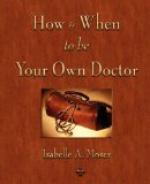I have studied and used Kinesiology for 25 years with the majority of my clients with very good success. There are some few people who are very difficult to test because they are either too debilitated, lack electrical conductivity, or their state of mind is so skeptical and negative about this type of approach that they put up an impenetrable mental barrier and/or hold their body so rigidly that I can hardly determine a response. A skilled can overcome the obstacle of a weak body that can barely respond, but the person who is mentally opposed and determined to prove you wrong should not be tested. If you proceed it is sure to have an unsatisfactory outcome for all concerned. For even if I manage to accurately analyze the condition of a skeptical client, they will never believe the analysis and will not follow suggestions.
The “scientific,” open-minded, “reasonable” client can be better approached using an academic-like discussion based on published literature that demonstrates how people with similar symptoms and complaints do very well on a particular dietary regimen and supplements. This type of person will sometimes follow dietary recommendations to the last letter, because their scientific background has trained them to be obedient.
When a client comes to me, I like to take a real good look at who is sitting in front of me. I take my leisure to find out all about their history, their complaints, their motivation to change, their experience with natural healing, their level of personal responsibility, whether or not they have to work, whether or not they can take time out to heal, will they fast or take supplements, do they have sufficient finances to carry a program through to a successful completion, do they have people closely connected to them that are strongly opposed to alternative approaches, can they withstand some discomfort and self-denial, do they have toxic relationships with other people that are contributing to their condition, are they willing to read and educate themselves in greater depth about natural healing, etc. I need to know the answers to these questions in order to help them choose a program which is most likely to succeed.
Even though fasting is the most effective method I know of, it is not for people who are compelled to keep up a work schedule, nor is it for people who are very ill and do not have anyone to assist them and supervise them. Nor is it for people who do not understand fasting and are afraid of it. People who have associates that are opposed to it, and people who do not have a strongly-functioning liver or kidneys should not fast either. Seriously ill people that have been on a meat-heavy diet with lots of addicting substances need a long runway into a fast so as to not overwhelm their organs of elimination. Does the person in front of me have an eating disorder, or an otherwise suicidal approach to fasting, etc. Clearly fasting is not for everyone, and if I recommend it to the wrong person, the result will be a bad reputation for a marvelous tool.




